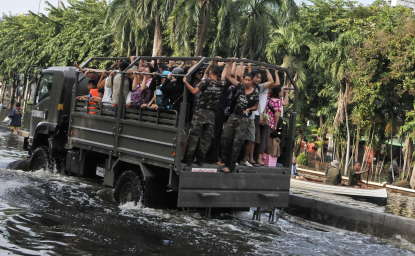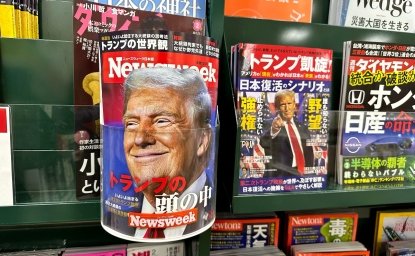In Pakistan, Journalists Take Steps Forward Amid Political Transition
Five senior-level Pakistani journalists discussed the challenges of and recent progress in reportage in their home country, from government access to public perception.
Five senior-level Pakistani journalists discussed the challenges of and recent progress in reportage in their home country, from government access to public perception.
Pakistan's press has developed into a dynamic and influential institution. In the last year, the media have been instrumental in providing breaking real-time coverage of major events affecting the country, including the lawyers' movement, the February 2008 parliamentary elections, and the recent resignation of President Pervez Musharraf. However, challenges do remain. Five senior-level Pakistani journalists, appearing at a September 16 Asia Program event, discussed the various obstacles currently facing the country's media.
Dawn newspaper's resident editor for Islamabad, Zaffar Abbas, highlighted significant trends in Pakistan's media. Television and private media outlets are mushrooming, and newspapers are more open in their reporting. Additionally, he asserted, 24-hour Urdu-language news coverage in Pakistan has ultimately changed the country, and television anchors have played a major role in making or breaking governments. However, Abbas also suggested that the media should assess their performance in order to understand the impact they can have on society. He noted that the Pakistan Federal Union of Journalists is developing its own code of conduct and instituting a media complaints commission to receive feedback from the public.
Massoud Ansari, a political correspondent with Herald, a monthly newsmagazine, spoke about the hurdles facing investigative journalists in Pakistan. When reporting on a sensitive topic, he noted, a journalist often has to assess the consequences of covering a story. Ansari added that you ultimately have to ask yourself whether or not you want to be associated with a particular story or contact. He supplemented his discussion with several anecdotes, illustrating the issues investigative reporters face in the field, from their editors, and from the government.
Mazhar Abbas, the deputy news director for ARY One World Television and the secretary-general of the Pakistan Federal Union of Journalists, called Pakistan's journalists some of the most courageous in the world. Although many have been jailed or flogged for their efforts, they continue their struggle for freedom of the press. Many journalists today continue to operate in dangerous conditions, and many have been abducted, tortured, or killed. According to Abbas, about 45 Pakistani journalists have been killed since 2000. These media professionals are facing pressures not only from the government and intelligence agencies, but also from non-state actors, including militant and ethno-nationalist groups.
Ejaz Haider, the news editor of The Friday Times and the op-ed editor of the Daily Times, examined the media's relationship with the military. He addressed two major issues—first, the military's need for secrecy, and second, how this need may affect the media's capacity to understand what goes on in conflict zones. Haider underscored the obstacles hindering the media's ability to get to the truth, arguing that journalists must always search for a middle ground between the perspectives of the military and those of militant groups. Ultimately, he noted, it is easier for journalists to deal with the government and its agencies than with non-state actors.
Asma Shirazi, a special correspondent and host for ARY One World Television, talked about the rise of electronic (broadcast) media in Pakistan. She noted that privatized television channels have covered breaking news stories and have ultimately changed the way the public receives its news. Shirazi also emphasized the need for capacity-building for television journalists, through academies and on-the-job trainings. Such efforts, she asserted, would further bolster the quality of television news. Ultimately, she is encouraged by the current media environment, and asserted that television anchors are impacting national policy and influencing Pakistan's public.

The Indo-Pacific Program promotes policy debate and intellectual discussions on US interests in the Asia-Pacific as well as political, economic, security, and social issues relating to the world’s most populous and economically dynamic region. Read more



